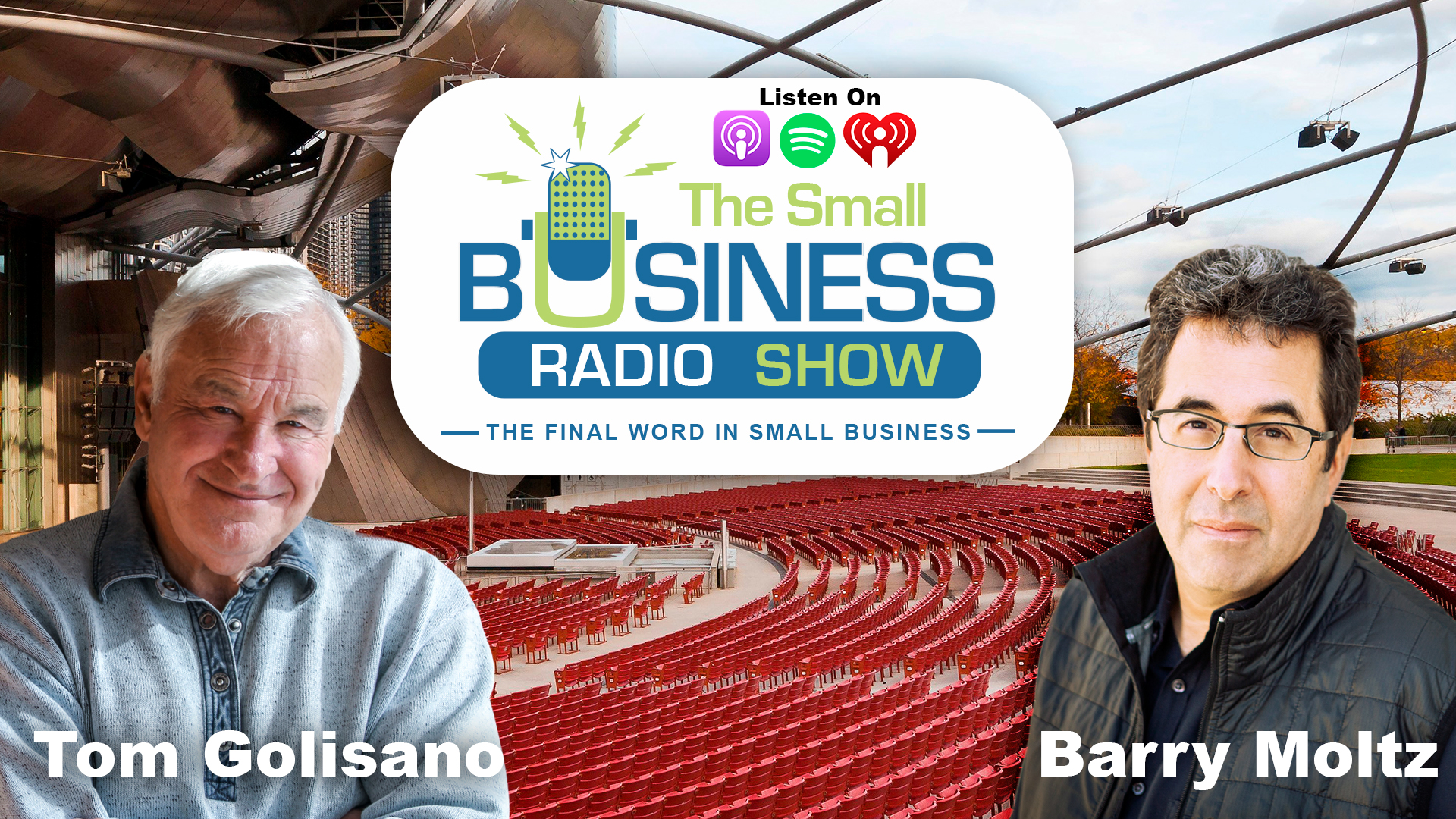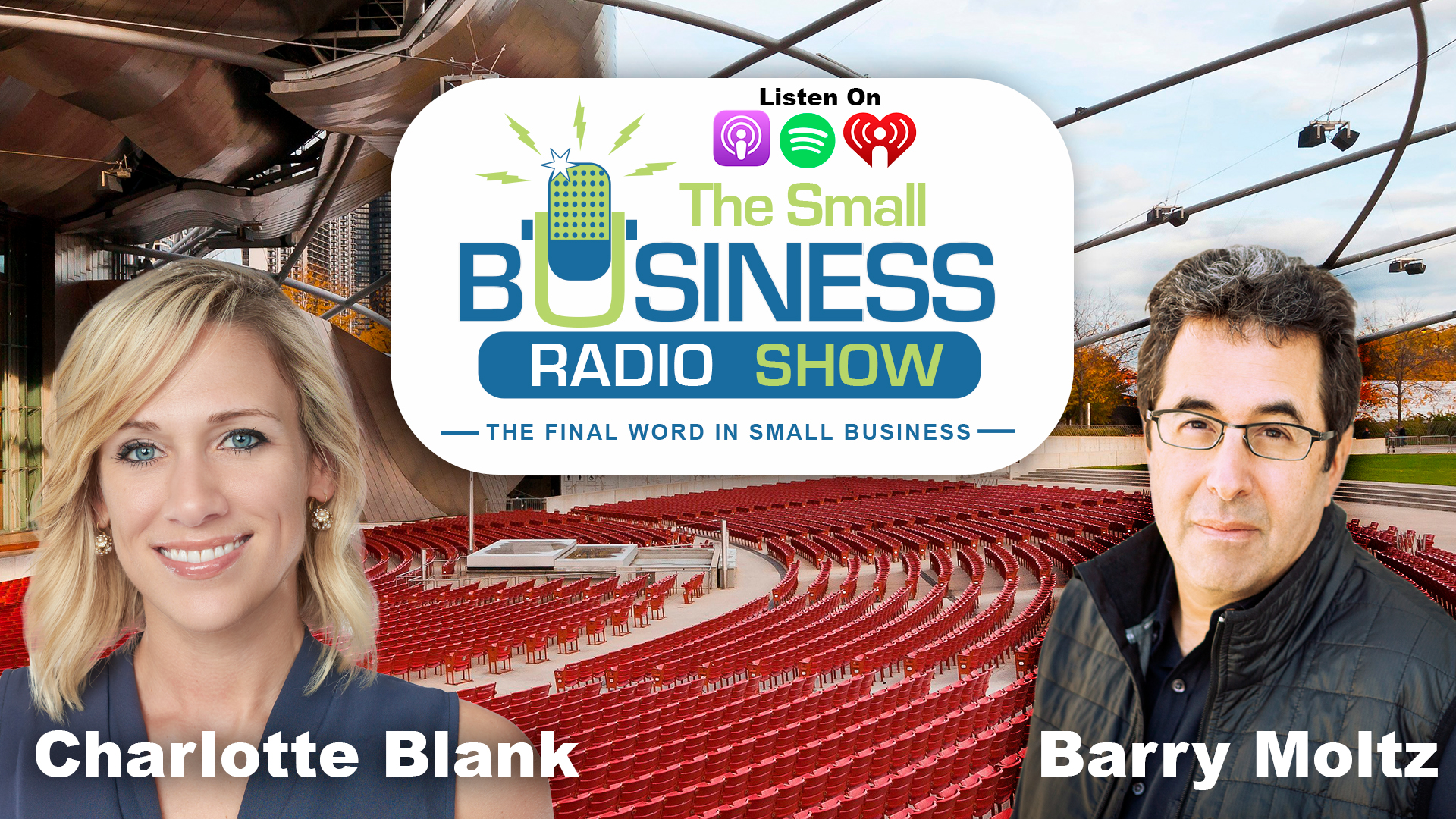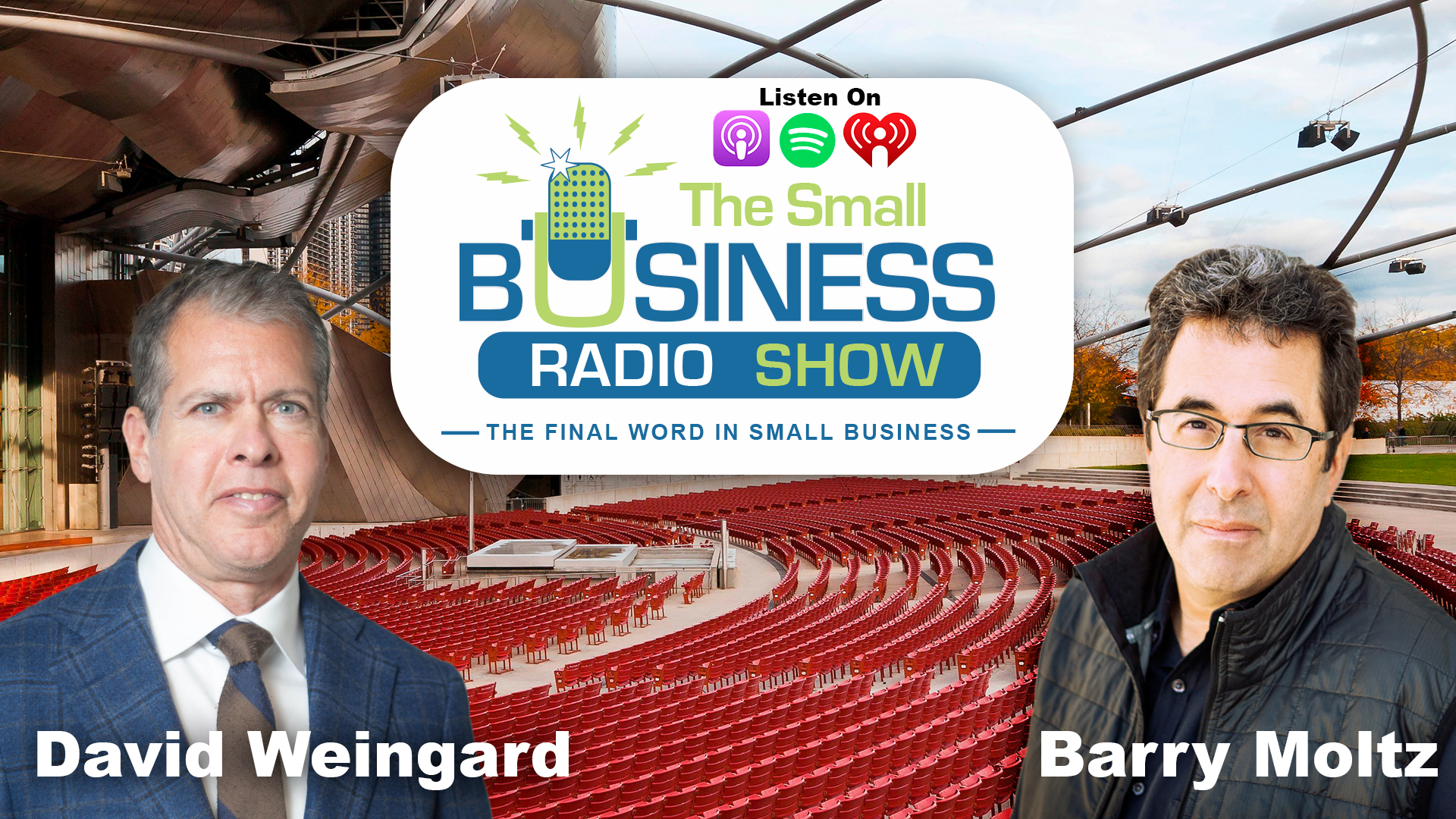On this episode of The Small Business Radio Show…
SEGMENT 1, starting at 0:00: Tom Golisano built a $30 billion company with $3000 and a credit card. How did he do it and what wisdom does he have to share with entrepreneurs starting their first company? If you prefer to read the transcript of Tom’s interview, click here.
SEGMENT 2, starting at 19:45: What does behavioral science have to do with small business? For starters, its principles can help you bring out the best in your people by motivating them to unleash their potential. Charlotte Blank, chief behavioral officer of Maritz, is here to explain how this works.
SEGMENT 3, starting at 37:45: Thirty million individuals are diagnosed with diabetes and the number of patients is continuing to grow. Many lose hope after a diagnosis, don’t know how to manage their disease, don’t have local access to doctors who can help with diabetes or simply don’t take medication at all. David Weingard is here to share how his experience with Type 1 diabetes inspired him to create Cecelia Health to help others struggling with the disease.
Sponsored by Nextiva, LinkedIn, vCita and Blue Summit Supplies
More on each segment below.
Segment 1: Tom Golisano—entrepreneur, philanthropist, civic leader, and former owner of the Buffalo Sabres NHL team—is the founder and chairman of the Board of Paychex , with more than 15,500 employees and 100 office locations nationwide, Paychex is the leading provider of payroll, human resource, and benefits outsourcing services for small- to medium-sized businesses. Active in both business and philanthropy, Tom currently mentors the entrepreneurs who run the businesses in which he has invested, and he also oversees his family’s charitable foundation. To date he has donated over $300 million to a wide range of charitable causes. He is the author of the book “Built Not Born”.
Click here to read the transcript of Tom’s interview
2:30 – How did you start a $30 billion company with $3,000 and a credit card?
4:30 – The biggest mistake entrepreneurs make.
6:45 – How do you get people to trust you when you’re just starting out with a business—especially dealing with a sensitive topic like payroll?
8:30 – What’s the best way for entrepreneurs to figure out how much capital they need to get started?
12:00 – What are some of the key ingredients in negotiating a good deal for everyone?
14:45 – How do you train an entrepreneur to be a good leader and manager?
Segment 2: Charlotte Blank is chief behavioral officer of Maritz. She leads the company’s practice of behavioral science and innovation, through expert applications of social psychology and behavioral economics. Incentive Magazine named Charlotte a Visionary and one of 2016’s 25 Most Influential in the Incentive Industry.
19:45 – What is behavioral science?
22:30 – How to design a system to incentivize employees to reach their goals.
25:45 – The importance of defining the greater purpose of your company.
27:30 – An example of how to give employees autonomy and choice in the workplace.
29:00 – How do social connections help incentivize employees to reach their goals?
30:15 – What rewards are best for celebrating achievements in the workplace?
Segment 3: David Weingard was diagnosed with Type 1 diabetes, at the age of 36, while training for a survival race. An avid athlete, David committed to rebuild his life and provide positive energy to the diabetes community while coping with the condition. David found help through a Certified Diabetes Educator (CDE) named Cecelia. His experience receiving meaningful education and support from her sparked the idea for Cecelia Health to leverage technology to scale the patient reach of adherence and outcome improvement programs for pharmaceutical, payer and provider organizations.
38:45 – A crisis is unfolding in America as the diabetes epidemic continues to grow.
42:00 – How David discovered his Type 1 diabetes and what he decided to do about it.
45:45 – The revolutionary combination of personalized coaching and technology to help people with diabetes.
49:00 – How real-time data insights can drive immediate behavior change (like diet and exercise), so that people can feel better faster and more of the time.
Sponsored by Nextiva, LinkedIn, vCita and Blue Summit Supplies



